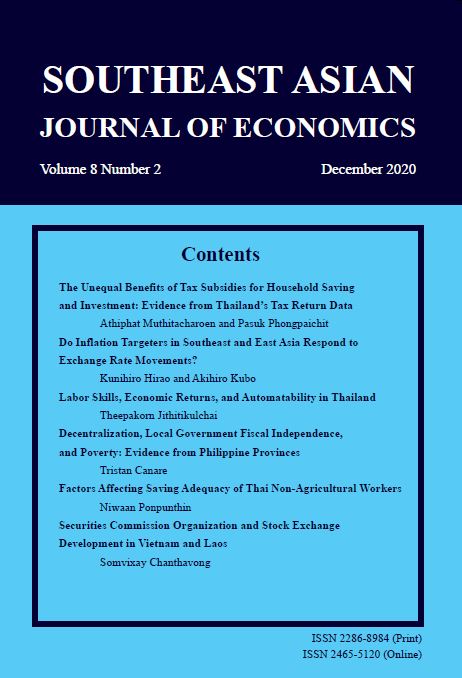Decentralization, Local Government Fiscal Independence, and Poverty: Evidence from Philippine Provinces
Keywords:
decentralization, poverty, fiscal independence, PhilippinesAbstract
Decentralization has become a popular development program among middle- and low-income economies worldwide. The rationale behind decentralization is the local government’s proximity to consumers gives it an information advantage over the central government on needs and preferences. However, the central government has economies of scale and has access to more resources. Using data from Philippine provinces, this paper studies the relationship between decentralization – as represented by local government fiscal independence and as measured by locally sourced revenues expressed as share of total revenue – and poverty incidence. It finds evidence that fiscal independence is associated with lower poverty, but the relationship is not linear. There is an optimal level of decentralization, beyond which, its relationship with poverty becomes positive. Moreover, the decentralization-poverty relationship is stronger in provinces with good governance, and weaker in provinces with lower income.
Downloads
Published
How to Cite
Issue
Section
License
The submission of a manuscript implies that the paper is an original work and has not been published elsewhere. The author(s) authorize the journal to reproduce or distribute the paper in printed or other electronic forms.







